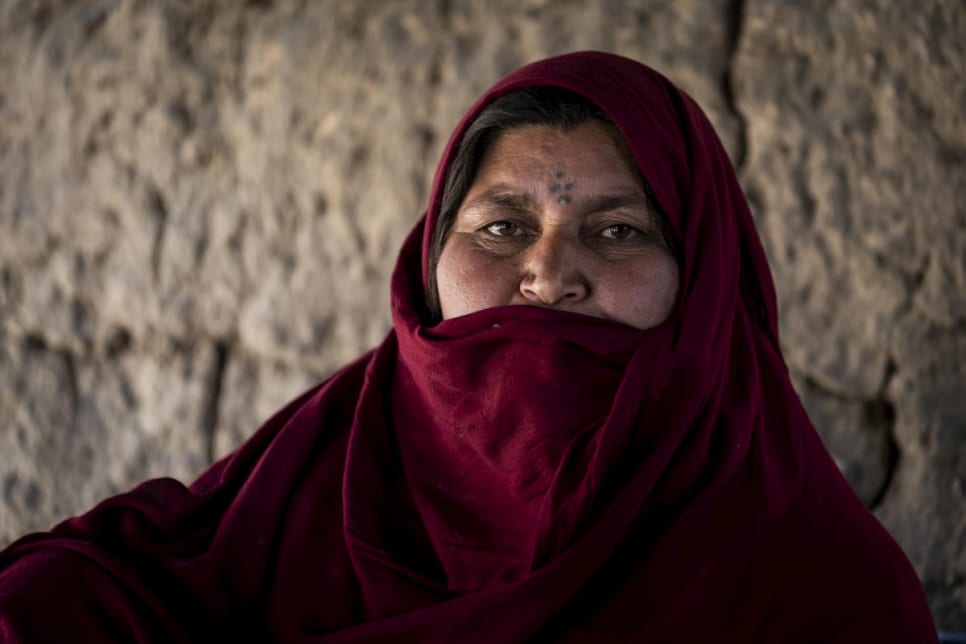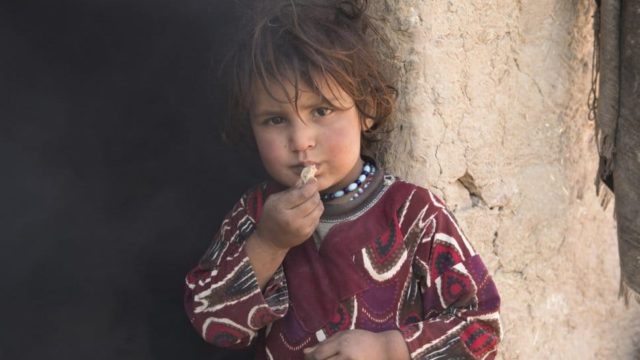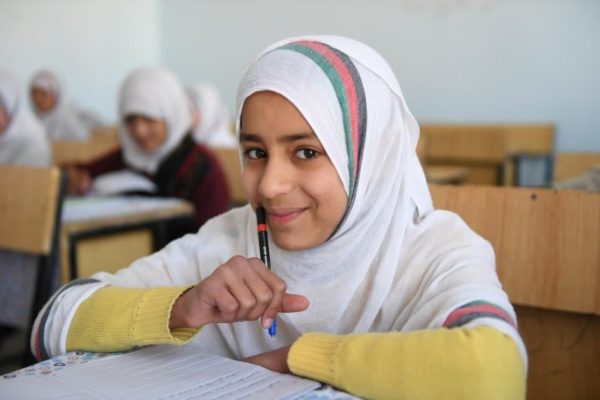
Afghan mother Khatima, 40, a returnee from Pakistan, in her home in Haji Munjai township, Kabul, Afghanistan, July 2019. © UNHCR/Claire Thomas
UNHCR, the UN Refugee Agency, together with representatives from the Islamic Republics of Afghanistan, Iran and Pakistan, are today calling for renewed partnerships, targeted investments and more international solidarity to address one of the world’s longest-running displacement situations.
As the crisis in Afghanistan enters its fifth decade, some 2.7 million Afghan refugees still live outside the country, while another 2.6 million are displaced within Afghanistan. Meanwhile, since last year, Afghans have made up the largest group among refugees and migrants arriving in Europe through the Mediterranean routes. Increasingly, they include Afghan women travelling with their families – a symptom of an ongoing crisis in which prospects of solutions remain elusive.
“Afghanistan’s displacement crisis is one of the largest and most protracted in UNHCR’s seven-decade history. We’re now seeing a third generation of Afghan children born in exile,’’ said Filippo Grandi, UN High Commissioner for Refugees, addressing a virtual high-level meeting, as he called for international support to Iran and Pakistan to help enable the inclusion of refugees in national education and health services in countries of asylum, and voluntary return and reintegration for those who wish to return home.
‘’We must take this opportunity to renew solidarity and to galvanize progress towards solutions,” said Grandi. “The cost of inaction would be to condemn Afghans to a continued precarious existence, with few prospects of rebuilding their lives.’’
Afghans and their hosts have shown immense resilience during 40 years of exile, overcoming numerous challenges. High Commissioner Grandi highlighted Iran’s investments in refugee healthcare and education, which have seen the literacy rates of Afghan children increase from 6 per cent to 68 per cent.
In Pakistan, the Refugee-Affected and Hosting Areas programme has provided community infrastructure and other forms of support to more than 12 million refugees and locals. Refugees are now able to open bank accounts and access financial institutions.
‘’These efforts must be bolstered and supported,” Grandi said, noting that such work was even more urgent in the wake of the COVID-19 pandemic and a deepening regional socio-economic crisis.
Since 2012, Afghanistan, Iran and Pakistan have pursued a regional approach – the Solutions Strategy for Afghan Refugees – to build an environment conducive to voluntary repatriation and sustainable reintegration in Afghanistan, while also easing pressure on host communities.
With UNHCR’s help, some 5.3 million refugees have been able to return home in the last eighteen years.
In December 2019, on the margins of the inaugural Global Refugee Forum, UNHCR, together with partners, launched a support platform to achieve more equitable burden-sharing and create real solutions for displaced Afghans. Today’s meeting aimed to give further definition to this arrangement through a core group of states will act as champions for these efforts and help mobilise financial and technical resources.
Through an enhanced and integrated response focused on health, education, skills and employment, UNHCR and the three governments are striving to create better conditions for Afghans throughout the region, and ultimately to lay the groundwork for their voluntary return to their homeland, when the circumstances are right.
The future of millions of people now depends on renewed partnerships and targeted investments by the international community both inside Afghanistan and in refugee-hosting Iran and Pakistan.
For more information on this topic, please contact:
- In Kabul, Mohammad Nader Farhad, farhadm@unhcr.org, +93 791 99 00 18
- In Islamabad, Qaiser Khan Afridi, afridiq@unhcr.org, +92 (0) 300 501 8696
- For Iran, Farha Bhoyroo, bhoyroo@unhcr.org, +98 912 132 7183
- In Bangkok, Catherine Stubberfield, stubberf@unhcr.org, +66 65 929 8062
- In Bangkok, Kasita Rochanakorn, rochanak@unhcr.org, +66 646 168 325
- In Geneva, Babar Baloch, baloch@unhcr.org, +41 79 513 9549
Originally published on UNHCR on 06 July 2020





